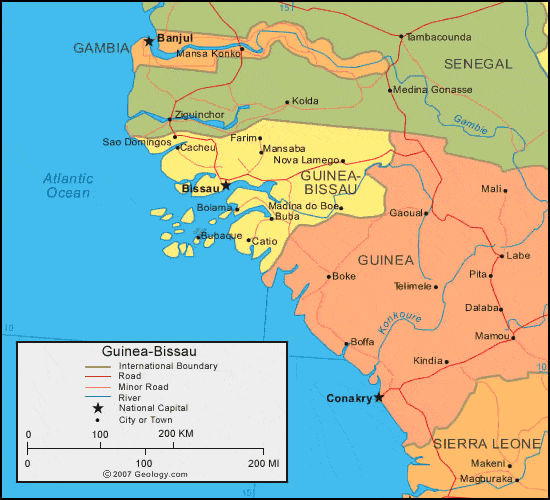"2 Politicians Are Killed in Guinea-Bissau
DAKAR, Senegal — Two prominent politicians were killed in Guinea-Bissau on Friday, just three months after the killings of the country’s president and army chief.
The authorities in the foundering West African nation said that they had thwarted a coup attempt and that there had been “fatal victims” after intervention by the military police.
The local United Nations office, however, called the killings “murder.”
The victims were not identified in the Interior Ministry’s communiqué, but the United Nations office in Bissau, the capital, identified them as Baciro Dabo, a candidate in the coming presidential elections, and Helder Proença, a member of Parliament and former minister of defense.
Officials said Mr. Proença was the leader of the coup attempt.
A third well-known figure, former Prime Minister Faustino Embali, was arrested, according to the United Nations, though several news reports said he had also been killed.
Calls to government ministries in Bissau were not answered Friday. Diplomats and observers there said the atmosphere remained calm despite the killings.
Guinea-Bissau, an impoverished former Portuguese colony, has become an ideal transshipment point for drugs from Latin America, diplomats say, because its institutions are so feeble and its leaders so susceptible to payoffs.
In early March, the longtime president João Bernardo Vieira was assassinated. Gen. Batista Tagme Na Waie, his old rival, had been killed by a bomb hours before.
There have been no prosecutions and few plausible explanations for those killings.
The latest killings only underscore the institutional weakness, in the view of diplomats, who expressed alarm at this fresh evidence of the country’s deteriorated political climate. The United Nations, the European Union and the United States Embassy in Dakar, which has responsibility for Guinea-Bissau, issued statements condemning the new violence.
“The secretary general is concerned about the emerging pattern of killings of high profile personalities in Guinea-Bissau,” the United Nations said in a statement, adding that “these criminal acts are a tragic setback for efforts to restore the rule of law and democratic processes in the country.”
The presidential elections are scheduled for June 28.
Mr. Dabo was killed early Friday in his home, diplomats and news agency reports said. Mr. Proença was shot in his car, along with a driver and a bodyguard.
The Interior Ministry said the coup leaders had planned to kill the armed forces chief, Jose Zamora Induta, and the prime minister, Carlos Gomes Jr., and dissolve the National Assembly and the Council of State.
But the head of a leading local radio station, the Rev. Davide Sciocco, said of the official explanations, “I have my doubts.”
He added: “It is not very clear why they killed them. All this history is very, very strange. This history is not clear to us.”








































No comments:
Post a Comment